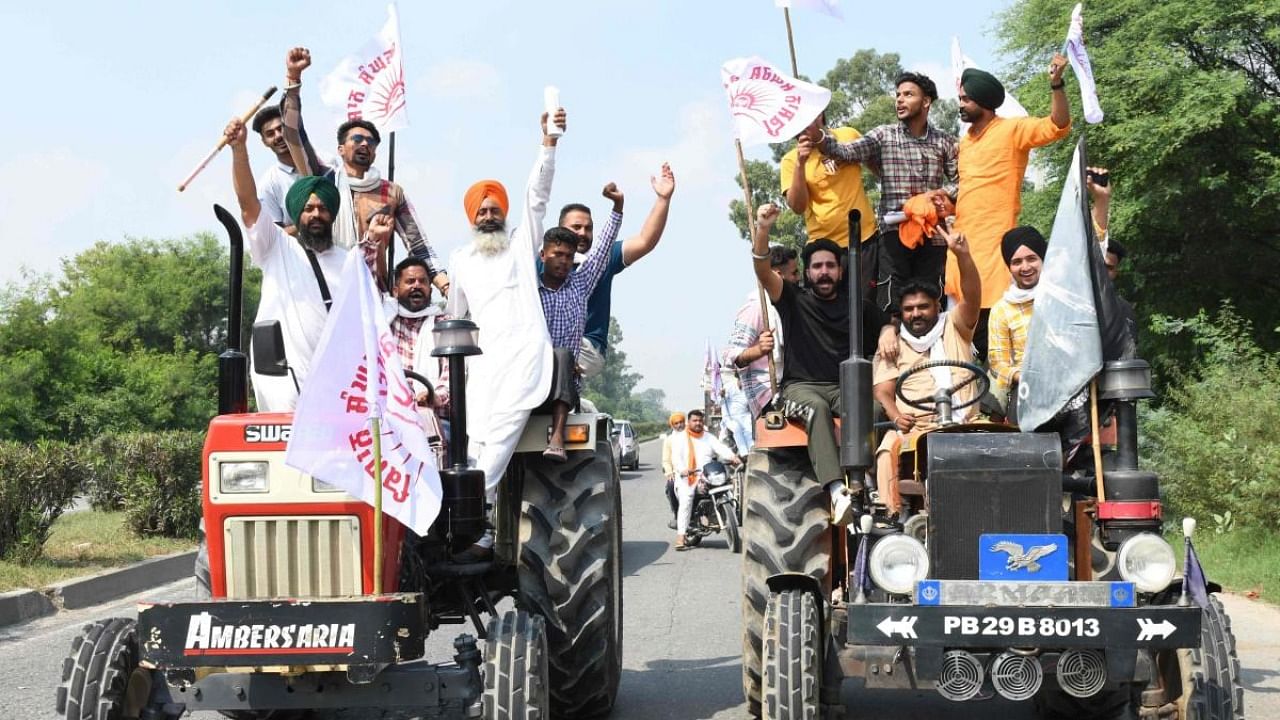
The Supreme Court on Thursday queried the Union government as to what it was doing to remove the road blockade by the farmers, protesting against three agriculture laws at the national capital, once again voicing its concern that the roads can't remain occupied perpetually.
A bench, presided over by Justice Sanjay Kishan Kaul, pointed out that redressal of a problem can be made through judicial forum, agitation or Parliamentary debates but the highways can't be blocked and this cannot be a perpetual problem.
"We have already laid down the law and you have to implement it. If we encroach, then you may say that we have trespassed on your domain... This has ramifications but there are grievances which are to be redressed," the bench said.
The court also asked Solicitor General Tushar Mehta and Additional Solicitor General K M Nataraj specifically as to what the government was doing in the matter.
Mehta, for his part, submitted that at a very high level, a three-member committee was constituted. We invited them (the agitating farmers) to attend the meeting. However they did not join the meeting, he said.
He sought the court's permission to make the agitating farmers' groups as parties to a plea filed by Monicca Agarwaal for removing road blockades affecting the free movements of traffic between Delhi and Noida.
The court allowed the Centre to file an application in this regard and put the matter for consideration on Monday.
On August 23, the court had asked the Centre to find a solution to the blockade of roads caused here in the National Capital Region in view of the ongoing farmers' protest against three agriculture laws.
It had said that the protestors have a right to protest at a designated space but can't block the outflow and inflow of traffic.
Earlier, the court had issued notice to Centre and Delhi Police Commissioner and others on the plea of the woman who alleged that instead of the normal 20 minutes, she ends up spending two hours for her travel from Noida to Delhi.
On January 12 during the farmers' protests, a separate bench, while staying implementation of three farm laws, said, "this order will encourage the farmers bodies to convince their members to get back to their livelihood, both in order to protect their own lives and health and the lives and properties of others."
On October 7, 2020, the top court, in its judgement with regard to Shaheen Bagh sit-in against the Citizenship Amendment Act, had then declared that public roads and spaces can't be occupied indefinitely for protests, causing inconvenience to the people, and the demonstrations must be organised at designated places only.
Watch latest videos by DH here:
